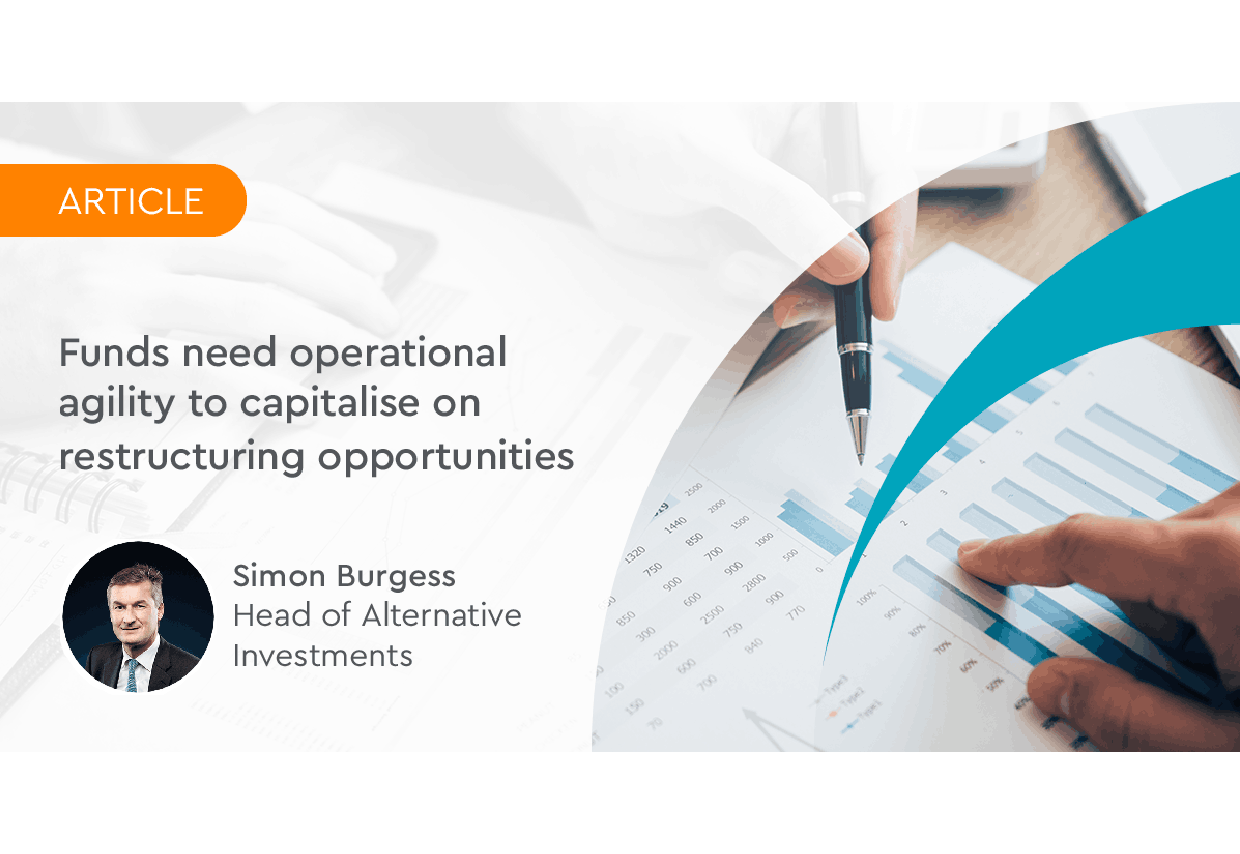The gradual withdrawal of government support for businesses as industries start to recover from the pandemic will lay bare which companies can survive and which can’t. This will likely present opportunities to fund managers seeking distressed assets in hard-hit sectors. In our research, private debt respondents identified high street retail and automotive (both 85%) and freight and logistics (80%) as the most attractive sectors over the coming three years.
Operational agility will be key for managers to capitalise on prospective investment opportunities over the coming year given that more than four fifths (83%) of respondents expect significant corporate restructuring to take place, including 100% of private equity respondents. Over nine in ten (92%) of respondents in our capital markets survey expect corporate insolvencies and restructurings to present opportunities to them.
The downturn has also pressured asset prices in sectors such as retail, creating opportunities for fund managers to buy real estate or non-performing loans at attractive prices with the potential for capital increases over a relatively short period. This also offers a hedge against the prospect of inflation.
The business sectors that our respondents see as most likely to improve on their current performance include aerospace (81%), high street retailers (80%), automotive (79%), infrastructure (79%) and banks (78%).
Although the most advanced economies are expected to bounce back, it is important to remember that there will also be long-lasting structural and behavioural change for businesses to prepare for. Remote and flexible working is already having an impact on cities and the movement to lower and middle cost locations, for example. Office moves are being cancelled or postponed and office space reformatted to allow for more collaborative team working, which organisations have found difficult to replicate on videoconferencing sessions. By way of example, it has been reported that major employers in the City of London, such as Aviva, Natwest, Deutsche Bank and Lloyds have all laid out plans to shift to greater remote working.
Fixed-income yields are expected to remain under pressure amid continuing low interest rates, although this may be impacted by inflation. Either way, the hunt for new sources of returns is expected to drive more investors to alternative assets, especially private equity and real assets. Nearly two thirds of our respondents (64%) believe investors will increase their allocation to private capital and hedge funds (including private equity, real estate, venture capital, infrastructure, private debt and renewable energy) in the next three years. Respondents from Asia (84%) were even more confident of this happening.
Fund managers will want to be ready to seize this expected influx of investment but internal and external market pressures could impede them if they aren’t operationally fit. Past performance is also seen as a key factor in the success of fundraisings. Nearly nine out of ten (86%) agreed that, over the next three years, the time it takes for private capital investment firms to complete fundraisings will become even more polarised depending on performance. And 88% said the role of the fund manager would become even more important.
Streamlining operations
So how do fund managers ensure that they are in shape to deal with the changing landscape? They may consider conducting a review of their operations and business model to assess whether they have the agility to take advantage of opportunities as they arise.
If they decide they don’t, they could seek help with some of the administrative functions from third-party providers; 70% of our respondents expect to increase the amount of functions they outsource in the next three years. Outsourcing can create a leaner operating model that allows fund managers to grow and contract when needed and to focus on creating investor returns.
Bespoke fund solutions
With specialist teams in key international jurisdictions, we provide a full range of fund administration and associated fund services to give our clients clear visibility and confidence in the performance of their investments. Find out more about how we can support your fund operations by .
